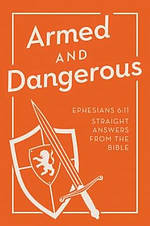This book reads as a diverse set of New Testament passages and Christian doctrines, and usefully summarises, in each case, a number of existing or possible interpretations. The passages include, in order, The Sermon on the Mount; the ‘Parable of the Unforgiving Slave’; the ‘cleansing of the Temple’; the doctrine of the Atonement; a so-called ‘Household Code’ in which passages and verses, mainly from the Epistles, are read as instructions for domestic life and the ordering of domestic power; and apocalyptic passages describing or foreseeing ‘Divine warfare’. These readings are presented as part of a single argument suggesting that, although they all describe or invoke ‘violence’, Jesus appears through them as a model of ‘the subversion of violence’ rather than of its ‘legitimization’. This hardly surprising conclusion might become more intriguing if the varied concepts clustered here as ‘violence’ were interrogated a little; and also if the sometimes interesting information about the social and political circumstances in which the passages were written was allowed to suggest that what is under consideration is actually not Christ himself but interpretations of him made by different writers in strongly differing times.
Trustpilot











